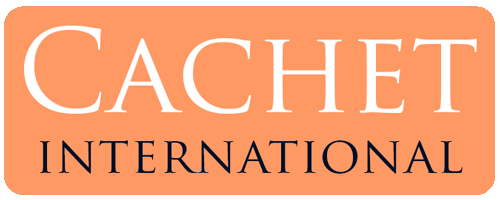To discuss a corporate intelligence or financial investigation matter, or to learn more about Cachet International’s investigative resources in your jurisdiction, contact Michele Palmer by email or at 602-899-3993.

Asset Investigations: How “Intelligence” Can Be More Valuable than Evidence
A fascinating case study illustrates how inadmissible intelligence helped unravel a complicated and apparently bullet-proof scheme to hide assets.
- See Part 2 of this article: “Converting Intelligence into Court-Admissible Evidence”
The use of intelligence is essential in most asset investigations. While often not admissible as evidence, as most human source intelligence is obtained from individuals who will not agree to testify or whose information will not survive challenges in court, human source intelligence is often the only practical way to uncover sophisticated asset concealment schemes.
Following is an actual example of how such intelligence played a key role solving a complicated and apparently unsolvable case.
A prominent international lawyer, skilled in opening offshore companies and bank accounts for his clients, was divorcing his U.S. wife. Although Wife believed that Husband had tens of millions of dollars, Husband claimed to have lost his money in “bad international investments” and to be bankrupt, a claim to which he swore in depositions and in court.
Clearly, Husband was an expert in concealing assets. Forensic accountants had found nothing useful other than the fact that he had not filed income tax returns in the U.S. for several years, instead allowing the IRS to assess him for estimated income. In short, he did not perjure himself to the U.S. government. Searches of the few documents that were found were also unhelpful, as was a search for his U.S. bank accounts. Depositions and standard investigations had proved fruitless.
Penniless, having borrowed money from friends to pay for her lawyer and standard investigations and accountants, Wife came to Cachet International as a last resort.
In our investigation, first we found a human source who told us about waiting for Husband to take some money out of his account in a foreign country “for traveling” – while the human source waited in a nearby cafe. That eventually led us to a successful search for nearby banks in that foreign country, where Husband was found to have an undeclared overseas account. That account was then traced to other related offshore accounts.
We then found another human source who had inadvertently taken a telephone call for Husband, in which the caller stated that his long back-ordered custom luxury car would soon be available in a foreign country. We eventually turned up exact information on the car that was ordered, and on yet another of Husband’s undeclared overseas accounts that had been charged for the car. The car cost over $400,000 USD.
This intelligence gave Wife the critical information to obtain the court-admissible proof of the overseas accounts and Husband’s considerable wealth. The latter also supported a perjury charge for claiming bankruptcy in the U.S. and falsely answering during deposition.
KEY STEPS BEFORE INITIATING ASSET RECOVERY EFFORTS
The preceding story is one of many cases in which intelligence was the key to a successful asset tracing investigation and eventual recovery action, when traditional investigative methods were unsuccessful.
However, sometimes the value of intelligence is rooted in its ability to reveal the futility of costly legal action. (Some experts have estimated that over 80% of judgments in the U.S., and even more worldwide, are never collected.) In advance of launching a hidden asset investigation, it is critical to know the following:
- whether the assets of an opposing party justify the costs of litigation;
- what resources an opposing party has to spend on litigation;
- whether to believe an opponent’s claims of poverty or other representations made during negotiations;
- whether an opponent is shielding assets by transferring them to associates or associated companies; and
- how to best enforce a monetary judgment, including identifying the best jurisdictions to pursue assets.
We have become accustomed to “gatekeepers,” frequently profiting from professional confidentiality (fiduciary companies and business formation companies), that set up complex structures and shell corporations. On behalf of their clients, these gatekeepers register corporations in “secret” jurisdictions, where the company register is either not public or contains no shred of relevant information about the actual beneficial owners. International business corporations (IBCs) that are shell companies registered in offshore tax havens are then used to open bank accounts at locations where customer due diligence is not up to world standards, and where the likelihood of mutual legal assistance is slim or outright absent. Such structures can create a dense smoke screen – and that is precisely their purpose.
Persons concealing assets, particularly in offshore locales, have most of the advantages afforded to them by strict local business secrecy laws. Starting off with little or no information will result in encountering daunting and indeterminable legal and investigative fees. Further, if a claimant is seeking financing of his recovery effort, approval is unlikely to come without some specific advance intelligence about the financial resources of the opposing party.
The first task is normally to confirm the existence of assets to which the target can be linked or that the target owns or controls. If, for example, the target has lost or spent the assets in question, can the cost of the eventual legal action be recovered?
A second key element is to look for other assets (bank accounts, real estate, investment accounts, safe deposit boxes, related persons, etc.) and/or related businesses in which the target has equity. “Piercing the veil” to find the ultimate beneficial owner (UBO) in an offshore locale is a formidable but critical task to be accomplished before embarking on the asset recovery effort.
Intelligence can provide a rather detailed roadmap as to where to focus traditional investigations, depositions, forensic accountants, seizures, letters rogatory[1], Mareva injunctions[2], ex parte[3] judgments, etc. Good intelligence will make the process much more efficient and cost effective.
SUMMARY
There is a place for traditional asset tracing techniques, when obtaining relevant court orders is important.
Based on our experience, the speed of reaction often necessitates an alternative approach and different techniques.
Intelligence can not only save time but cut costs by determining whether legal action is worthwhile and, if so, how to make it more efficient and cost effective.
In today’s environment one thing is certain: An effective asset identification strategy will provide a greater chance of success and allow the claimant and his lawyers to make an educated decision of whether to move forward on a case.
Good intelligence can be the key to this success.
[1] Requests from courts in one country to the courts of another country to perform an act which, if done without the sanction of the foreign court, could constitute a violation of that country’s sovereignty.
[2] A court order which freezes assets so that a defendant to an action cannot dissipate their assets from beyond the jurisdiction of a court so as to frustrate a judgment.
[3] The Latin term ex parte is used in law to refer to court proceedings for the benefit of one party to a controversy, without the other being present.
All Rights Reserved | Cachet International, Inc.
Registered with the Arizona Department of Public Safety under Arizona License 1536489

